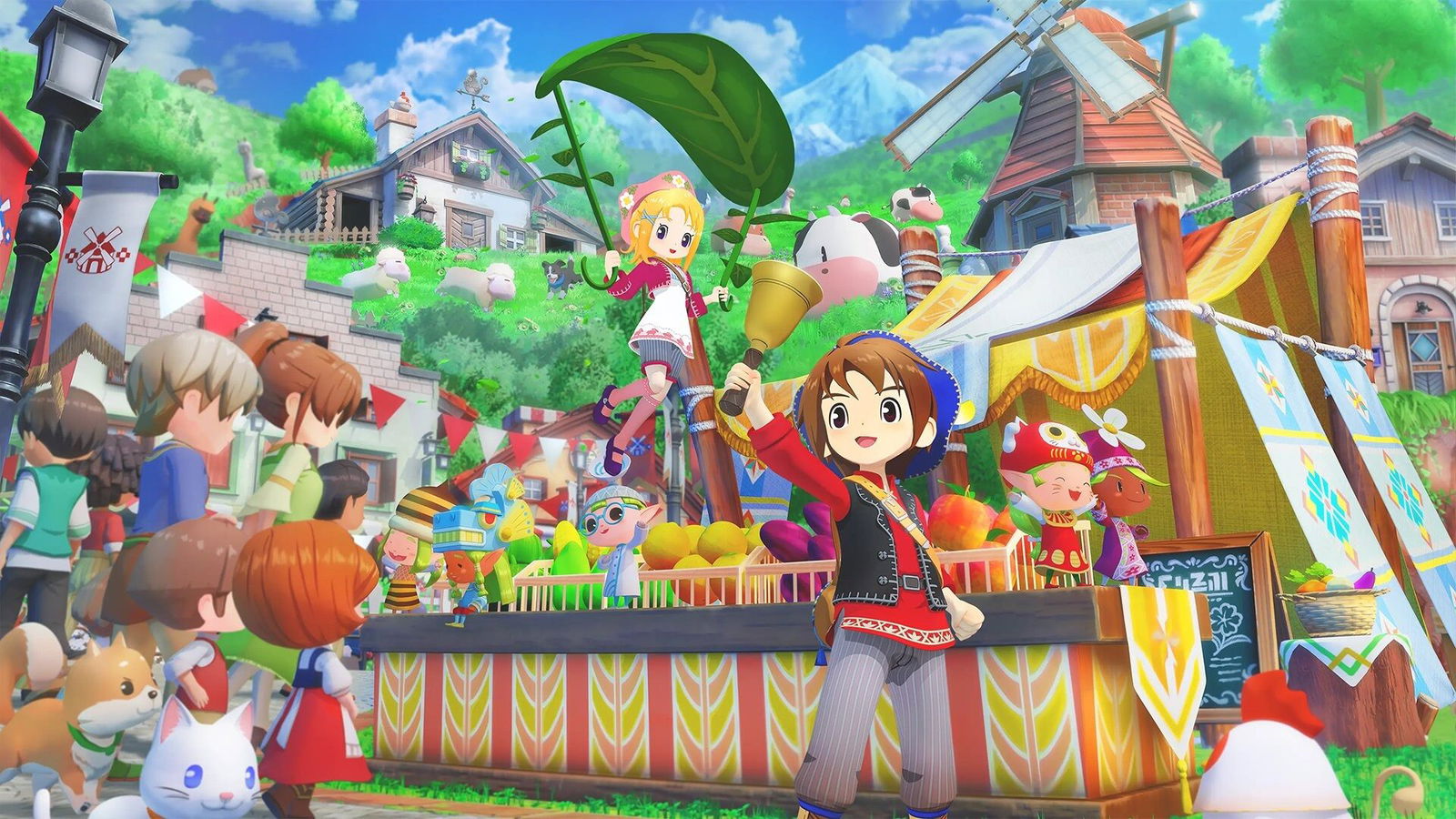Story of Seasons is back with an all-new game, Story of Seasons: Grand Bazaar, that takes you through Zephyr Town, where you’re building a new life with your own farm. The town’s bazaar was once famous but has since declined, and now the townsfolk need your help to restore it to its former glory.
I had a chance to sit down with Hikaru Nakano, who brings a great perspective to the series as both the manager of the Story of Seasons franchise and the director of several previous entries. I spoke with him about the latest updates in the game and the care that goes into a simulation title—one that is fun, immersive and customizable to the player’s desired experience.
Thank you for taking the time to sit with me. So, first question: What are you most excited to share with returning gamers about Story of Seasons: Grand Bazaar?
Hikaru Nakano: There are many things, but one I’d like to focus on is the location, as well as the animals and the communication with them. We put a lot of effort into that. In the original game, of course, you had your cows, chickens and all those kinds of animals—but in this game, the farm setting has been vastly improved. You can now see your animals out playing in the pasture and enjoy the cuteness of that, getting a nice feeling just from observing it.
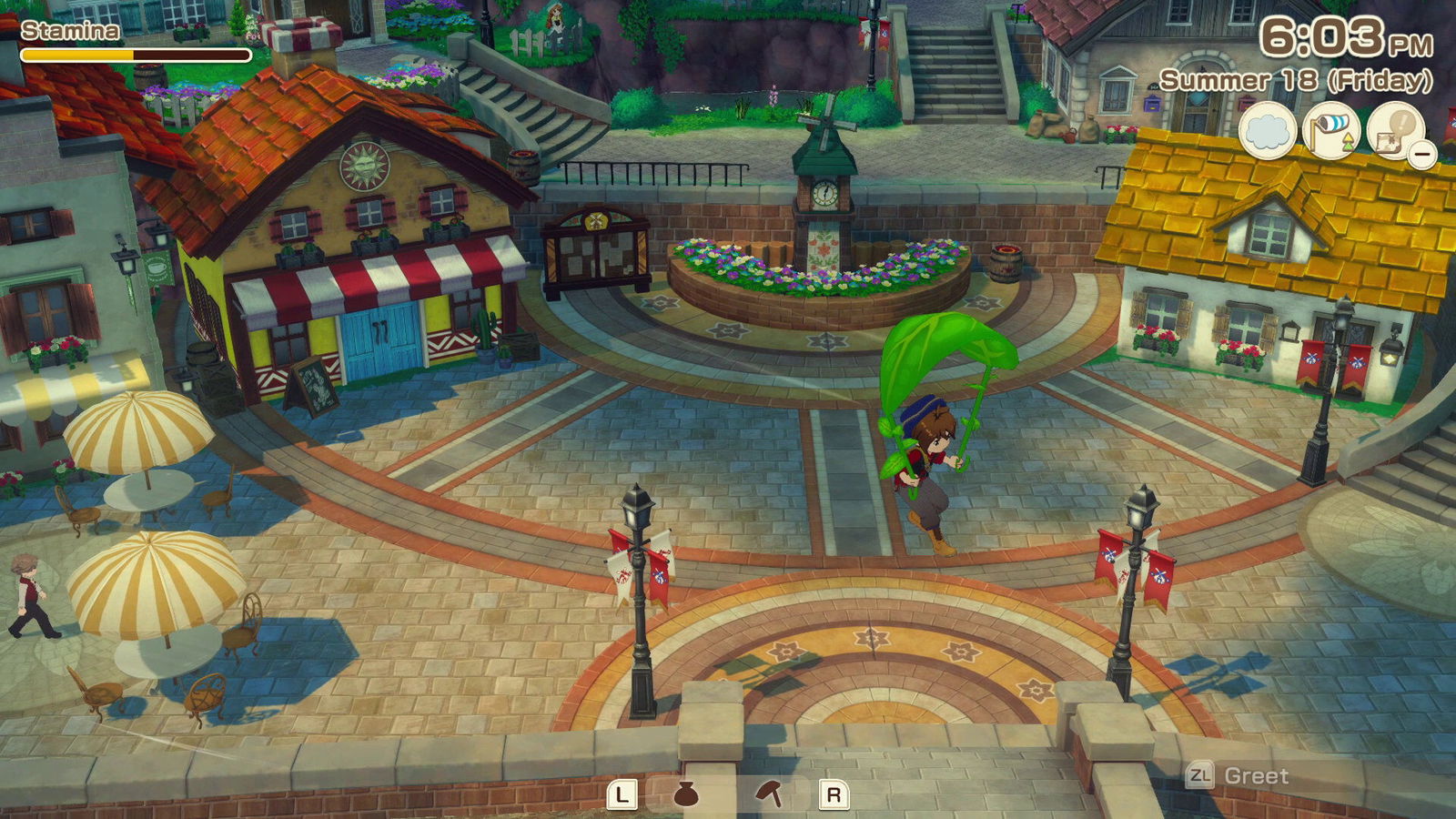
We’ve put a lot of care into the actions that the animals take, as well as their animations and their reactions, all in an effort for the player to feel closer to their animals that they are raising on their farm. So, for example, the animals may play with each other and have interactions that you can observe there. They also react to you in different ways when you interact with them as well.
You know, as part of your daily routine, you may like to go and brush your cows and hold the chickens, and you know that’s all fun in and of itself, but we worked really hard in this title specifically to improve the way that they react to you when we go through those actions so that you do feel closer to them in your farm activities. So yeah, that’s one thing that I’m excited for returning players to see.
I know the thing my daughter will be most excited about when she finally gets to see the game, is that for sure.
Hikaru Nakano: That’s good.
Something I noticed too—just a theme within the game—is the reward for care. That is, if you take proper care of your garden and prepare properly, it will be protected even in the harshest weather. And if you take proper care of your animals and things like that, you’re rewarded. How much thought went into that kind of process and function?
Hikaru Nakano: Being able to put time into something and give that care that you mentioned is definitely something that we think should have a reaction in the game. To, as you put it, reward the players and it’s great that there could be something good that comes of it if possible.
We had many ideas actually during the development of ways that we could reward various player actions and, you know, where that’s coming from us is there are, for example, many players who very much enjoy the animal aspect of the game, and they’ll name all their animals and play with them every day and really enjoy that interaction. And so we want them to be able to enjoy that behaviour even more and give them something good from that kind of behaviour.
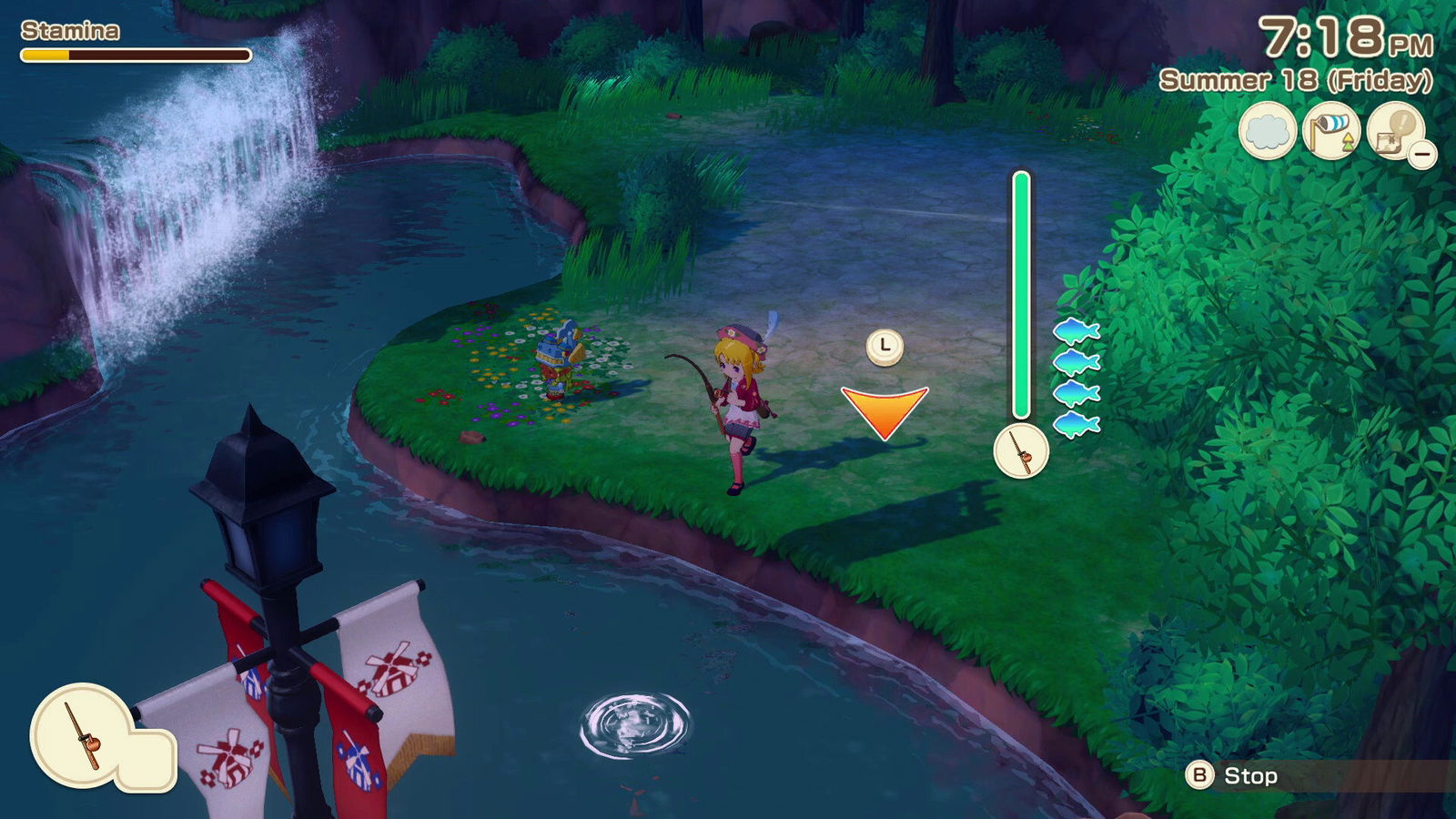
So maybe not all of our ideas were able to make it into the final version of the game, but you can see this reflected with if you take really good care of your crops, you make it a better crop. Higher quality. Same for your milk, too. The more you take care of your cows, the higher quality of milk you can get from them. So, this is something that is important to us as developers. It’s important to the game as well.
There are a lot of people in the game you can interact with, and they aren’t just typical mobs. How difficult was it to balance all the personalities to make sure each one was unique in its own way, so players could get to know them as they play Story of Seasons: Grand Bazaar?
Hikaru Nakano: Thank you for looking at all the various characters in the game. I appreciate that you’re paying attention to those details. It is a difficult task to balance all of the different personalities of the cast, but there are a few specific ways that we are able to build out their personalities and make them feel unique.
One thing we put particular effort into is the dialogue each character has at different points in time. It changes with the seasons; it changes based on events. They always have something new to say, and we can really reflect each of their personalities through the messages they share with the player.
To give a more granular example: let’s say there’s a festival, and the player enters a tomato that wins first place. You’re like, “Yeah!” You’re very happy. At that point, you can talk to all the various characters in town, and they may all react to that in different ways.
Some of them will very openly say, “Oh, I’m so happy for you,” and they’ll praise you and your success. Others might say, “Oh, maybe it was just by chance,” coming off a little colder. Still others may not even be paying attention—they might say, “Oh, it’s nice weather today, isn’t it?” Through these small details, we were able to flesh out the characters and help each one feel unique in their own way.
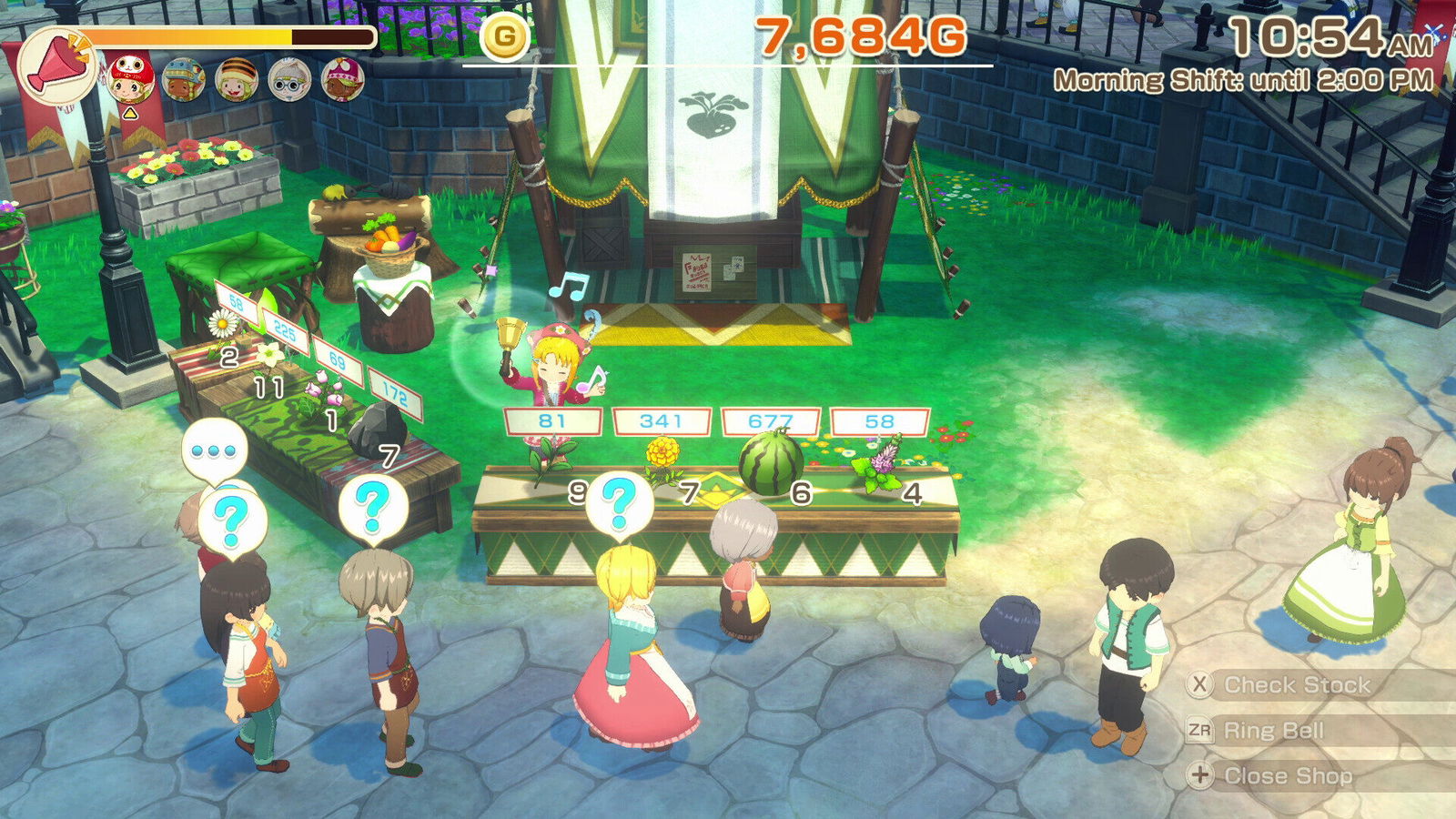
And something else you were able to do was add voices to the characters in Grand Bazaar. What is the process like, and how difficult is it to find a cast that matches the characters? There are a lot of big personalities in the game that players interact with, and I assume you had to cast for multiple languages. What’s the process for finding those characters’ voices?
Hikaru Nakano: Since we are based in Japan as developers, we first and foremost find the Japanese and other Asia language voice actors. From that, we pass the voices that we finalize on to Marvelous USA. Our Europe team, and we find the English and other European language voices from there to match kind of the same sort of feel that we have, with the Japanese. There are quite a lot of voice actors in Japan.
It’s a very broad field, so finding voices that we feel match the character we’re trying to create are actually maybe not as difficult as you may think in Japan because there are so many to choose from. But we do still go through a thorough process, conferring with the dev team, the developer team, the promotion team, as well as even talking to executives as well to make sure that we have the voice that everyone agrees upon.
It was something I really noticed in the game—especially with the character Felix—just what a big presence he had. The voice associated with him was exactly what you’d want: friendly, yet powerful.
My next question is about the pace of the game. It’s interesting because it mixes a relaxed pace—when you’re farming, petting your animals, doing your daily tasks—with the fast pace of being in the bazaar and trying to sell things at your stall. How do you decide on the right balance? And is it, in a way, its own analogy for real-life work–life balance?
Hikaru Nakano: As you mentioned, there are these two elements within the game, and first I want to talk about farm life. One thing that’s very important to us when we’re creating the farm experience for players is that we don’t want to tell them what they can or can’t do, or what they should do.
We want them to live their farm life the way they want to—to give them the freedom to do what they want with their life. That’s the main point of our game. While we may suggest what could be good or effective when managing a farm—you know, watering your crops so they grow big—we don’t tell players how to live their farm life.
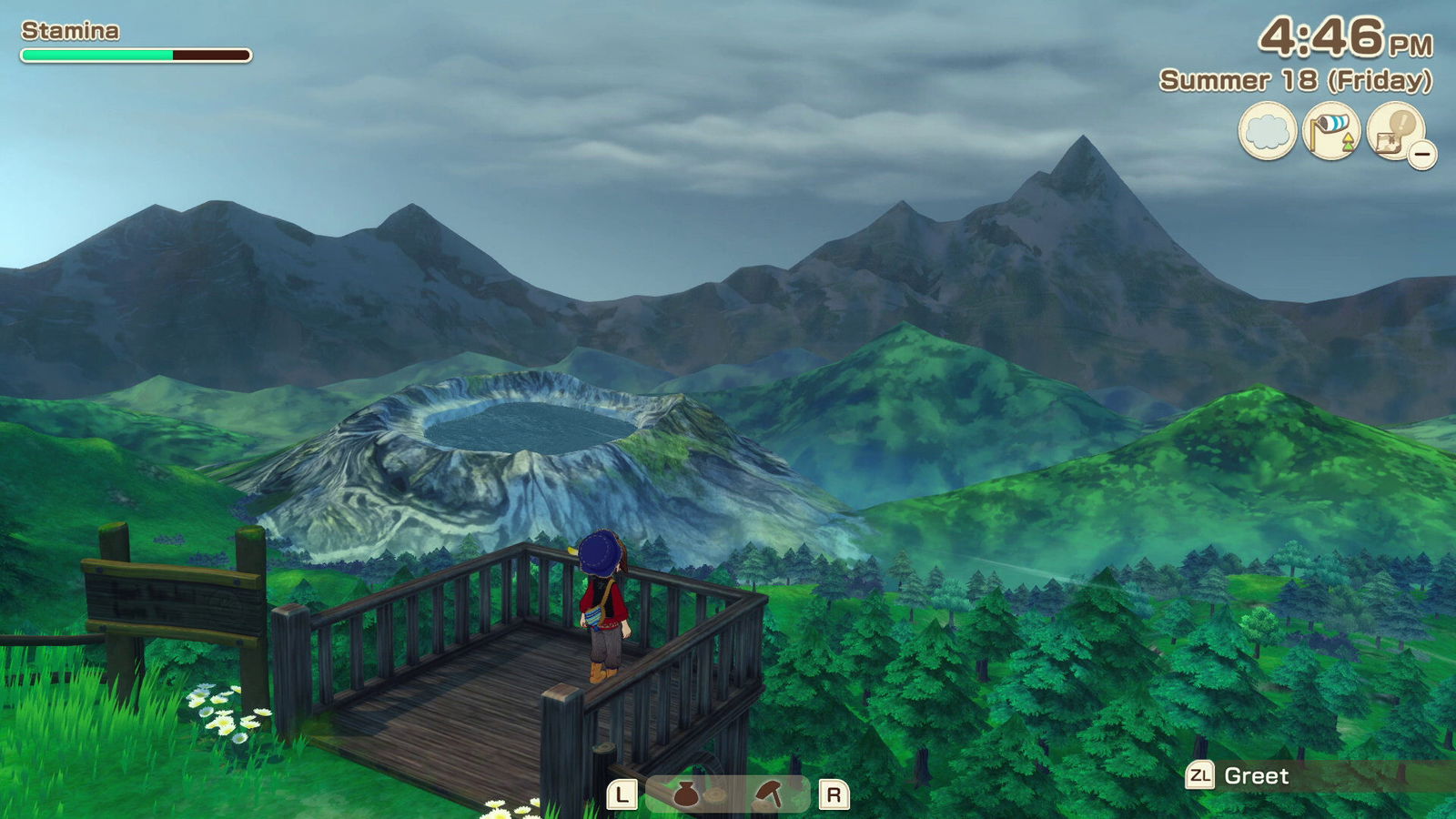
They can be very busy if they want to and work really hard on the farm, or they can just sit in nature and relax if they want to. There’s no penalty for that in our game. So that is very important to us when creating this game, that whole process. But it is balanced with the bazaar, as you said, where you do actually have an objective, and that is to sell the goods that you have created.
It does have a faster pace because the customers are walking by, and you need to be able to sell to them quickly; you don’t want to make them wait. You want to be able to sell all the goods that you have to make your money, etc.
We wanted to include that kind of difference in pace to create some variety for the player as well and give them some action in the midst of a more relaxed game. But it’s still okay if, you know, if they aren’t able to press the button fast enough or they aren’t able to optimize their performance in the bazaar, they can still come back next week to the next bazaar and continue to sell. So we think that even with having that distinction in action and pace, we still want the player to have the feeling that they’re in control of their farm life.
Something I noticed while exploring the romance aspect is that it’s a major part of the storytelling in the game. I also noticed, as I played through the different areas, how the music changes—whether you’re doing relaxed farming tasks, in the bazaar, or in a romantic scene that’s largely cutscenes and dialogue.
What’s the thought behind those musical cues and transitions, and how do they help enhance and support the storytelling?
Hikaru Nakano: I’ve personally been working on the Story of Seasons series for a very long time, and I must say that many years ago—toward the beginning of the series—music wasn’t actually all that important. Part of that was due to hardware limitations, but there really weren’t that many tracks in the game. There weren’t many sound effects, either. But even then, we did think, “Okay, this is an important moment, so let’s try to have good music for it.” That was about the extent of it.
With modern hardware like the Nintendo Switch and Steam, we now have much greater expressive capabilities. With that, we’ve vastly increased the number of tracks in the soundtrack, as well as the sound effects, to—just as you said—use all the tools we have to create a rich experience and strong storytelling.
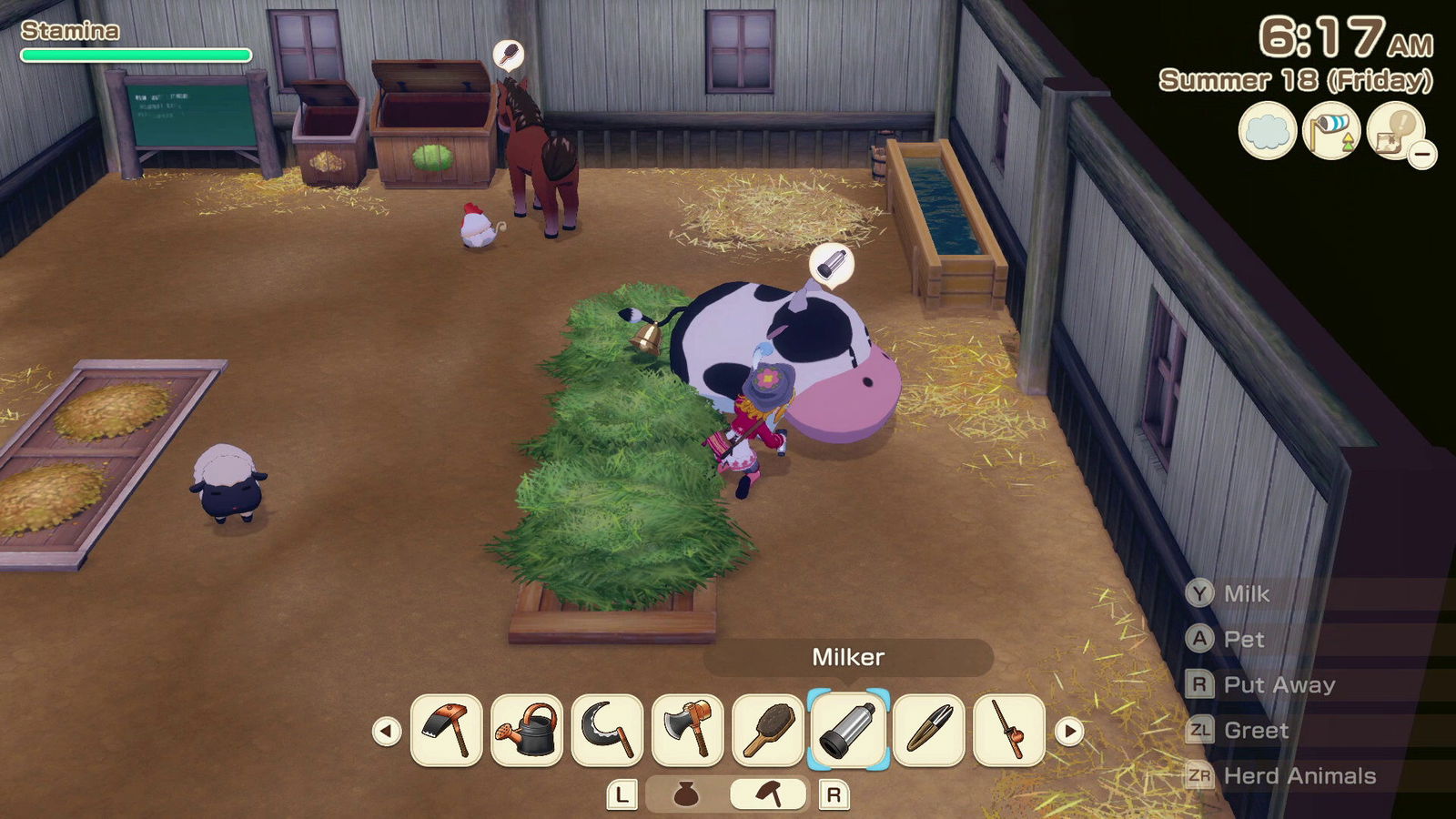
Now, when we create each title—since we have the capability—we sit down at the development stage and say, “Okay, we want to make sure we have music that fits this moment and this emotion. We want to make sure we have music that fits this scene as well.” That, combined with the new voice acting and sound effects, comes together to create the storytelling and rich, bountiful experience you were describing. So yes, that is one of our goals with the current games as well.
In Story of Seasons, you’re obviously expecting seasons—you’re expecting weather and the impact that might have on the player as the game progresses. But what’s interesting is that you’ve made it not just an obstacle for players to overcome, but occasionally something that works in their favour—for example, windmills allowing things to be made, created or processed faster.
How much care is put into the weather in the game and the impact it has on the player?
Hikaru Nakano: There are various impacts that weather can have on the player in both Grand Bazaar and the Story of Seasons series in general. The main categories of weather we have are sunny, cloudy, rainy and stormy, with some variations within those. To give an example of how weather affects gameplay: on a sunny day, your crops will grow well, and your animals will be happy enjoying the nice weather. But, of course, you’ll have to water all your crops—and your workhorses—because of it.
On a rainy day, this may depend on the title, but if you send the animals outside, they may not be happy about being in the rain. But on the other hand, you don’t have to water the crops because they’re getting watered already. So there are various effects that the weather can have on the daily work on the farm. Something that I think sounds really fun is if we could increase the amount of weather more and more. So, for example, let’s say you could tell the weather the next day by the color of the sunset on the day before.
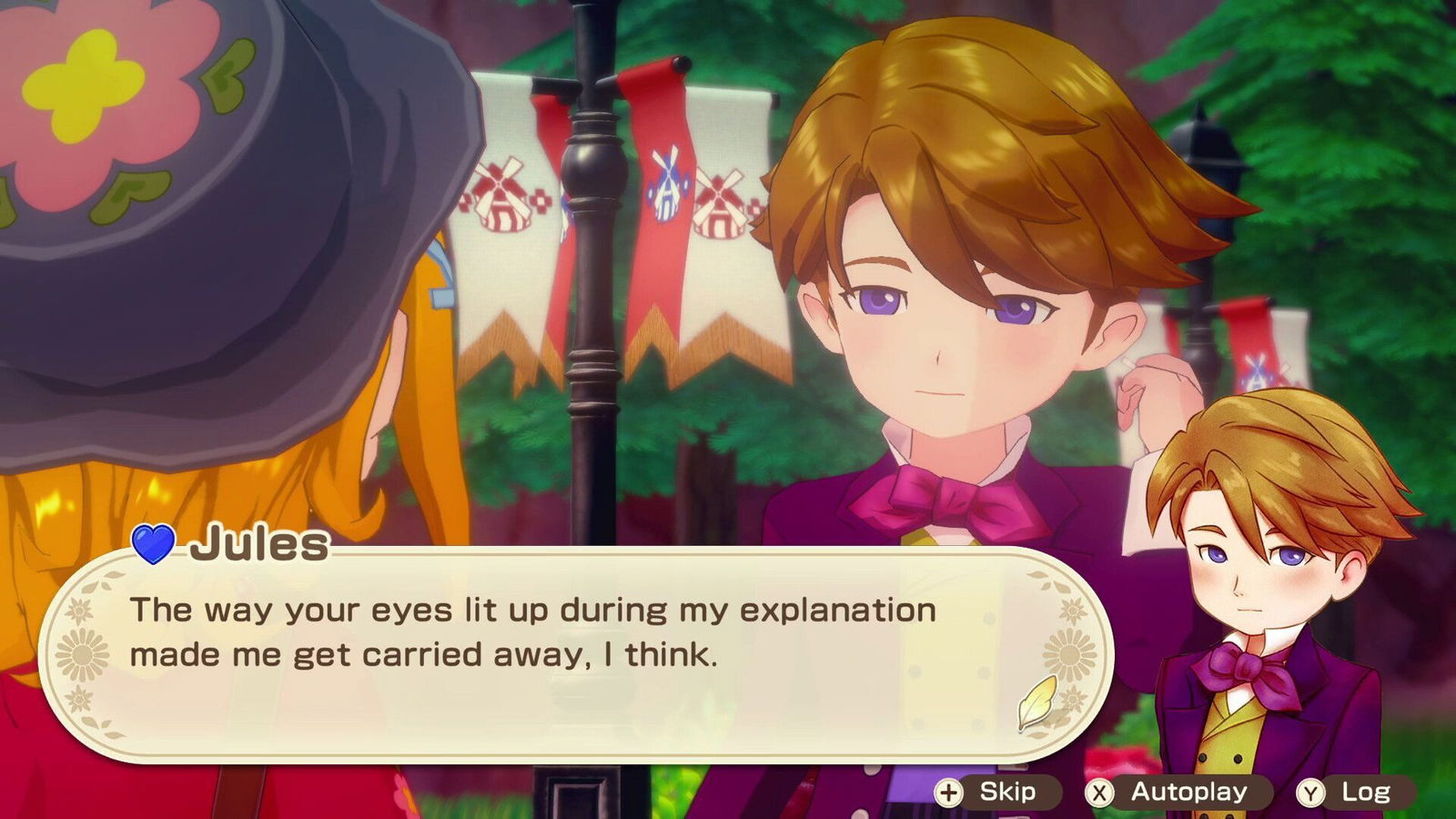
That’s the kind of thing that, in real life, would be really cool in a Story of Seasons game. For example, maybe there could be different kinds of snow—like powder snow or icy snow—those kinds of variations.
But something we have to keep in mind when considering that type of feature is that the more variations you include, the harder it becomes for the player to understand the advantages or disadvantages or even to distinguish between the different types of weather. Because of that, we try to maintain consistent categories so the effects of the weather are easy for the player to understand.
Specifically for Grand Bazaar, there are wind effects, like the ones you mentioned with the windmill. Generally, in Grand Bazaar, the stronger the wind, the greater the effects. For example, processing in the windmill becomes faster. There are other things in the game, too, that are improved by wind.
However, if the wind gets too strong and a typhoon—or a hurricane, I believe, in the English version—arrives, it can have some negative effects as well. So, weather in relation to the seasons is something we think about in every Story of Seasons game, and it’s emphasized in this one, too.
So, to confirm, I’m assuming it’s a typhoon in the Japanese version and a hurricane in the European version?
Hikaru Nakano: I believe that’s how it works. Okay, now that makes sense.
All right, well, that’s all I have. I want to thank you for your time, and I’m really excited to see this in full when it comes out if my kids let me play the game.
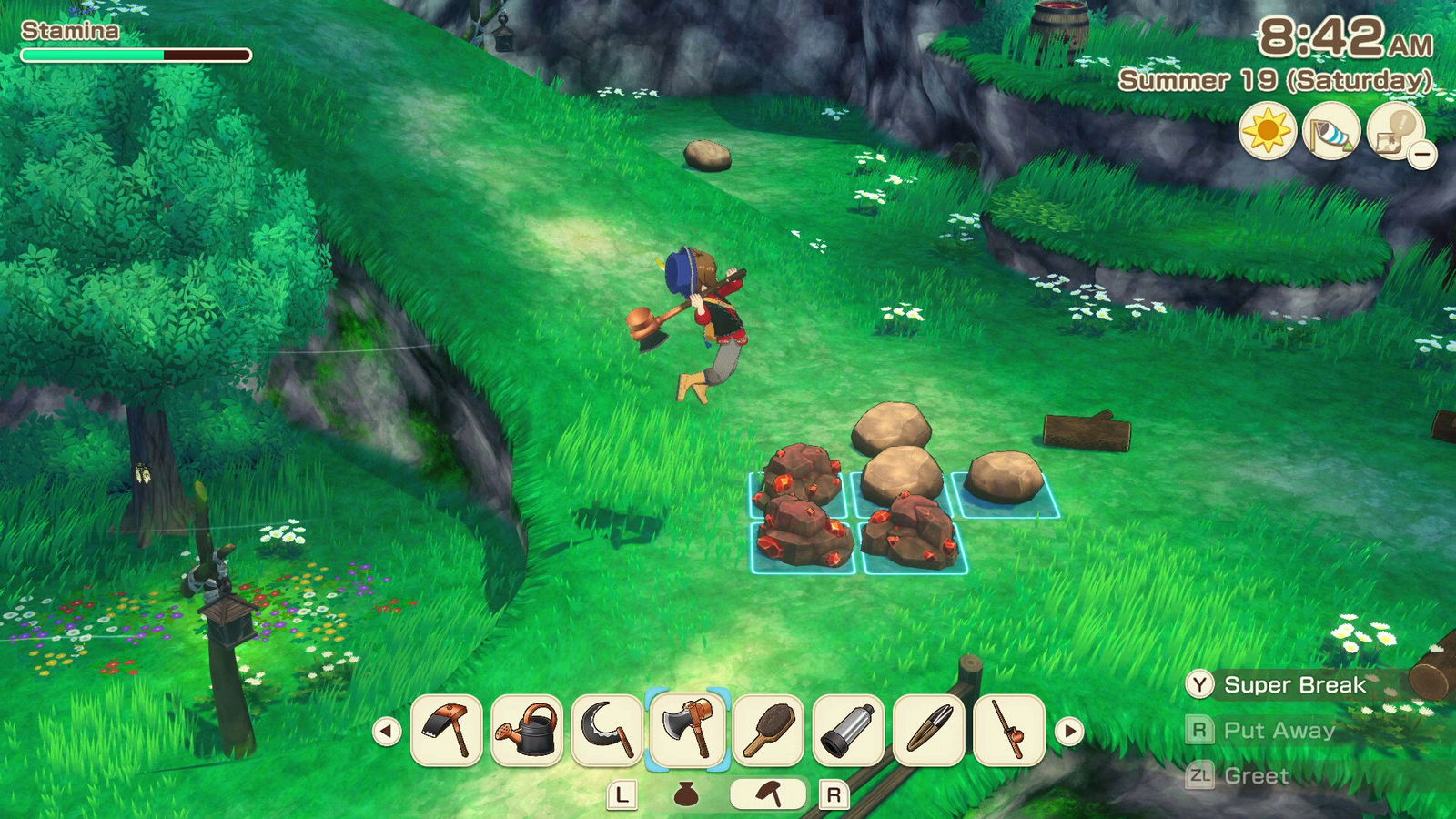
Story of Seasons: Grand Bazaar releases on Aug. 27 and will be available on Nintendo Switch and on PC through Steam. For more information about the game and its updates—both in aesthetics and gameplay—check out our article on our experience with the game at the preview event.
